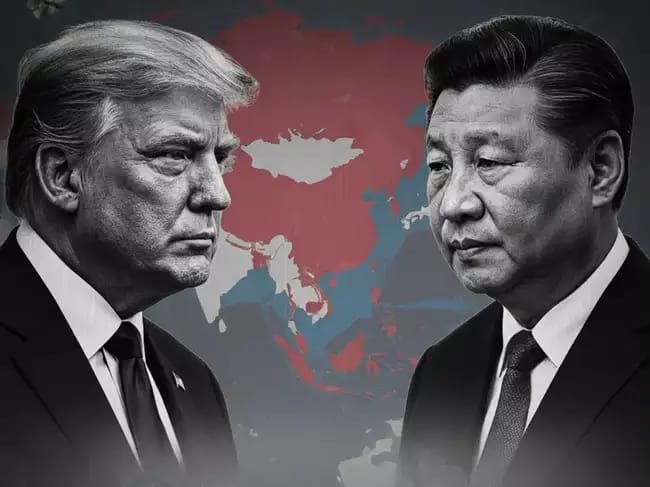- Up n' Running
- Posts
- 💸 RBI hits pause on Simpl’s BNPL play
💸 RBI hits pause on Simpl’s BNPL play
PLUS: 📈 H-1B fee hike? Barely a scratch for Indian IT
Good morning and Happy Friday. Hope you have a lovely weekend when it arrives 🌤️
Ruchirr Sharma & Shatakshi Sharmaa
TABLE OF CONTENTS
Bite-sized summaries
🧑🍳 What else is cookin’?
BNPL
India’s buy-now-pay-later (BNPL) party just hit a speed bump. The Reserve Bank of India (RBI) has ordered Bengaluru-based fintech Simpl to immediately halt its payment services, citing violations of the Payments and Settlement Systems Act, 2007.
What happened?
Simpl’s model is simple (pun intended): it lets users shop now and settle bills later interest-free for 15 days.
The startup powers checkouts for 26,000+ merchants including Zomato, BigBasket, and Rapido.
But here’s the catch: the RBI found that Simpl was effectively running a payment system handling clearing and settlement—without the required license.
The bigger picture:
For years, BNPL players rode on a regulatory grey zone, acting more like tech startups than financial institutions.
Regulators have now tightened the screws. Last week, RBI issued fresh rules bringing all payment aggregators online, offline, and cross-border—directly under its supervision.
Most BNPL firms have since sought NBFC licenses or tied up with regulated partners. Simpl, however, didn’t.
Why it matters: This isn’t just about one startup. It signals RBI’s growing insistence that fintechs must play by banking rules if they want to touch money. Investors once valued BNPL companies like high-growth tech firms, but regulators increasingly see them as lenders and want them to carry the same compliance burden.
Overall: Simpl may have branded itself as a modern-day khata (ledger), but RBI is reminding the industry: if it walks like a bank and talks like a bank, it better be regulated like one.
Read more: Economic Times
IMMIGRATION
The US just slapped a $100,000 fee on new H-1B visas - a move that sounds dramatic, but for Indian IT giants, the impact is little more than a rounding error. According to Crisil Intelligence, operating margins will shrink by just 0.20% (10–20 basis points) next fiscal.
Why so small?
Indian IT firms have been weaning off H-1Bs since 2018, when denial rates shot up to 24%. Instead, they’ve ramped up offshore delivery, near-shore centers, and local hiring in the US.
Visa dependency has nearly halved: H-1B employees at TCS, Infosys, Wipro, and HCL dropped from 34,507 in 2017 to 17,997 in 2025.
Companies will likely pass on 30–70% of the extra costs to clients, softening the blow.
The bigger picture:
The industry still leans heavily on the US, which contributes 53% of revenues. But visa costs, even under the new structure, remain a fraction of total employee expenses (0.3–0.6%).
India’s IT services exports ($119B in FY24) are the backbone of the global outsourcing story. While margins take a slight dent, the bigger shift is accelerated offshoring more jobs moving to India, fewer visas.
For students eyeing US degrees, though, the message is clear: the road may be getting pricier and tougher.
Overall: Trump’s fee hike makes headlines, but Indian IT’s playbook - less visa reliance, more offshore muscle means the industry will hardly break stride.
Read more: Economic Times
GENERAL OVERVIEW
🗞️ Bite-sized summaries

🇨🇳 China’s regional rise - China has overtaken the US as the most influential power in Southeast Asia, driven by trade, investment, and diplomacy, according to the Lowy Institute’s Southeast Asia Influence Index. Beijing now accounts for over 20% of the region’s exports, 26% of imports, and leads new investments, while also leveraging tourism, education, and Belt and Road projects. China is the top partner for six ASEAN nations, though its defence influence remains limited. US sway has eroded due to Trump-era tariffs, aid cuts, and inconsistent diplomacy, leaving it strong only in defence and culture. The report warns Washington risks becoming peripheral.
🏦 GST 2.0 tax relief - A new report by FICCI CASCADE and TARI says GST 2.0 will reduce household tax burdens by 27–30%, easing budgets and making essential and discretionary goods more affordable. The revamped structure is progressive, with higher-income groups contributing more, ensuring fairer distribution. MSMEs stand to benefit from lower rates, which also promote formalisation of the economy. A key change is the sharp rise in items taxed at just 5% from 54 under GST 1.0 to 149 categories now. This expansion not only supports affordability but also helps curb smuggling and counterfeit goods by reducing price gaps.
HEADLINES
🧑🍳 What else is cookin’?
What’s happening in India (and around the world 🌍️)
Hindustan Unilever's Priya Nair takes charge.
Trump may try to force drugmakers to lower some U.S. prices.
Former FBI director James Comey indicted on two charges.
You’re the best :)
It would mean the world to us if you shared this link with a friend!
P.S.: Up n’ Running can now be installed as an app on your phone! Here’s how:
Click on the banner above and select your browser of choice.
You will receive a pop-up saying “Install the app.”
Follow the instructions on that pop-up, and voila - you will now receive Up n’ Running updates directly to your phone! It’s also an easy way for you to access previous Up n’ Running editions at will.
That’s all for today folks - have a lovely day and we’ll see you next week.


